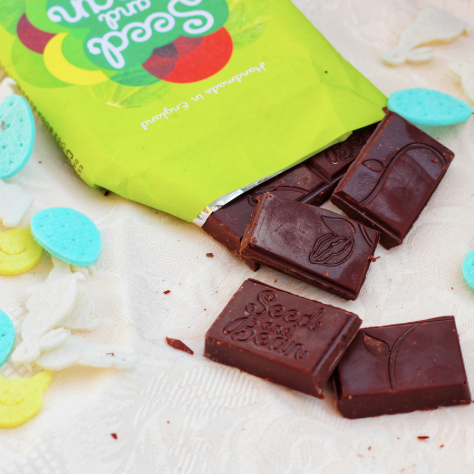Did you know that the food waste each person produces in their life time can accumulate up to a frightening £24,000? As well as the financial expense, waste is also severely damaging to the environment. But what can we do to prevent this? Consider this... If we buy less, we create less waste, and save more money and the planet!
How many times have you entered a shop and within seconds been completely seduced with sale slogans, big red letters, and those evil yellow ‘reduced’ stickers? Most likely, more than you’re prepared to admit. One only has to step foot out the door to be caught in sale traps and be entangled in posters and adverts. The outcome is usually a fridge full of unnecessary products, cupboards that are threatening to collapse, and a near-empty purse. This absurd excess of products is the leading cause of British food waste, which is estimated to be an overwhelming 10 million tonnes per year, 60% of which can be avoided if we just take a moment and be mindful.
Our culture has become hypnotised by having more - we are like moths to a light as soon as we hit the high street or supermarket, with the average British person shopping at least three times per week (2015). This is pure consumerism: we purchase too many clothes, too many beauty products and too much food, and worse, we are buying the wrong products, through which we can’t support local businesses. We produce tremendous volumes of food and packaging waste daily, which doesn’t seem to be decreasing; if humans are creatures of habit, consumerism and mindless shopping is the one we have to break.
Now, we know a little more about pesticides than we used to, but even if our heads are no longer in the clouds in this respect, as long as pesticides exist, we will still be surrounded by toxic substances. Pesticides don't only target ‘pests’ - they also target the consumers, and by shopping non-organically, we are sabotaging our health. Produce not farmed in an Organic way contains a multitude of harmful and often toxic substances. Furthermore, before the malignant substances reach us via the produce, they also creep their way into the soil and rivers around the plantation, which consequently causes severe pollution and often destruction of animal habitats. Do we really want to put the environment, animals and our own health at risk through the irresponsible use of these sinister chemicals?
Yet, the issue only seems to get worse - we are thoughtlessly shopping zombies who are rapidly forgetting about the wellbeing of producers. Behind each chocolate bar you buy there are 6 million people that rely on the cocoa trade as their main source of income, and of this 6 million only a minority receive a fair wage substantial enough to support their families, and many of them are struggling for food and shelter. And the problem has become bigger than just buying too much - we are buying ignorantly too. Do we know where the product is from? Who’s sweat and tears have been sacrificed for it? Do you know how much (or little) they’re being paid? Choosing Fairtrade products means you can sleep peacefully at night, knowing that you’re not contributing to the vicious cycle of unethical trade and can enjoy each bite of chocolate with a clear conscience.
So what can we do to make a difference? The answer is simple, shop consciously. Enter a shop asking your self whether that 20p broccoli which is suffocated in plastic will enrich your life, or whether its fate ends unceremoniously in the bin? When you're making decisions about your snacks, check out the labels for the Fairtrade and Organic logos - if they are undetectable don’t welcome those items into your basket, as there are plenty of alternatives with which you can substitute the products that are disloyal to its workers and consumers. And finally, be aware of the journey each product has taken before it has reached the shelf - nobody’s asking you to track each mile of the item, but to engage in the process of its voyage from soil to shop. When we begin noticing where the products we buy originate from, and the unjust fate of the workforce, we can also begin to create change.
Seed and Bean are in the minority of brands that tick all of the sustainable consumption boxes - the chocolate bars are proudly 100% Organic, Fairtrade, and have a 100% compostable wrappers (including their inner foil), which sets a high standard for all the other bars sitting on the shelves. So think before you shop, and shop wise. We only have one planet!
Thank you to Wiktoria Jazwinska for this amazing article, a 17 year-old passionate sustainability advocate, blogger and recipe creator shares the impacts of shopping unconsciously, and the importance of Fairtrade and organic products for our environment. If you enjoy reading this, make sure to check out her instagram (@wikis.vital.way) and blog https://afewmoments.home.blog.











